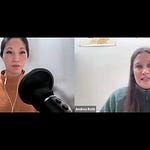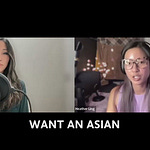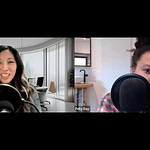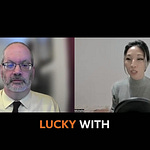✍️ After the Mic is a space for post-episode reflections from the podcast: what lingered, what shifted, and what got left unsaid. These are the thoughts that stay with me once the mic turns off. Until I share them with you here.
🎧 This podcast is a currently an audio-first production and you can listen to the full versions on Spotify and Apple. A clip of the episode has been added above and you can find full-length videos of this episode and more on YouTube.
Full episode library and show notes here: https://www.wecultivate.world/podcast
🎙️After the Mic
Post-recording reflections from Episode 9: Not Here to Save: What We Overlook While "Appreciating" Global Cultures, Part 1 (with Taylor & Jeremy)
Sitting down with Taylor and Jeremy, both from states I didn’t grow up in, reminded me how deeply place shapes identity. Even within the same country.
Too often, I hear people speak of “The United States” as if it’s one, unified experience. It isn’t. Not by a long shot.
Having lived in several regions of the U.S. and other countries abroad, I feel an increasing urgency to say this out loud: those 3,143 counties across 50 states aren’t just arbitrary lines on a map. Each line marks different laws, histories, industries, and cultural rhythms.
Each border, however invisible, creates its own container—a powerful frame that shapes everything from how you’re educated, to the opportunities you can see, to the words and expressions that feel natural to you.
As I shared in After the Mic: Episode 6, the U.S. doesn’t have a single national education system. It has 13,000 school districts making decisions at an intensely local level. That means kids are growing up with entirely different versions of “education” depending on where they live.
These micro-environments don’t just set different laws and policies, they create completely different realities.
Education is only one example. The same microlocal pattern plays out in healthcare, housing, employment, and beyond—creating not one “USA,” but hundreds of thousands of overlapping realities. Both systemically and individually.
Unity and uniformity are not the same thing.
Recently, I was talking with a friend about how if you’ve never seen much beyond your immediate surroundings, it’s easy to assume that what’s “normal” to you should also be normal everywhere else.
Taylor and Jeremy’s stories (like so many conversations I have every day) reminded me how essential it is to recognize the diversity of experiences that shape us.
The industries that thrive or decline in your state, the demographics of your community, the way local politics plays out—all of these factors shape daily life in ways you might not notice until you step outside your own context to compare. To contrast. To observe and evaluate with care.
The three of us grew up in different states, with different education systems and resources. We each carry different stories and perspectives—shaped by family background, personal philosophy, and individual psychology.
Every country has its idea of nationality, a label meant to unite.
But too often, unity gets mistaken for uniformity.
And there has never been a more urgent time to address this flaw.
The danger comes when we pretend there’s only one “right” way to live, learn, or even be a certain nationality—an ideological illusion that erases the real diversity of experiences within our borders and feeds the false idea that unity requires sameness.
The truth is, even if we share a flag, a language, or a history, the richness lies in the differences within that unity. That’s what makes us human. Not just in the U.S., but in every country. And it’s something we can’t continue to afford taking for granted.
There’s nothing wrong with being proud of where you’re from. But pride has to also leave room for nuance—for the fact that no other human will EVER carry your exact reality.
Too many people are collapsing nationality into identity. Confusing unity with sameness.
So here’s my invitation: take a moment to examine who you are, where you find yourself, and how you fit into the bigger picture—both in your country and in the wider world.
Resist the “fast-food” appeal of quick generalizations.
Begin to LISTEN more precisely, especially to those closest to you, in your own community.
That’s where the real depth begins.
Some questions for you, until we speak again:
If you live in the U.S., what’s one part of your state or region’s culture that those from other areas often misunderstand?
If you live elsewhere, what’s something people often assume about your country that isn’t true for your specific region?
How can seeing your local story within a larger national picture help deepen your sense of personal identity?










